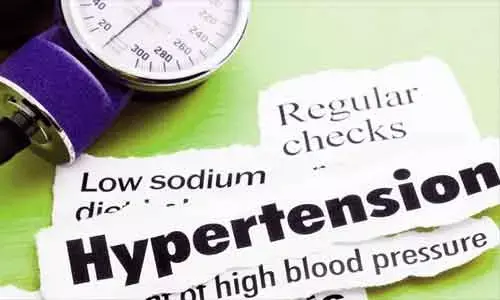- Home
- Medical news & Guidelines
- Anesthesiology
- Cardiology and CTVS
- Critical Care
- Dentistry
- Dermatology
- Diabetes and Endocrinology
- ENT
- Gastroenterology
- Medicine
- Nephrology
- Neurology
- Obstretics-Gynaecology
- Oncology
- Ophthalmology
- Orthopaedics
- Pediatrics-Neonatology
- Psychiatry
- Pulmonology
- Radiology
- Surgery
- Urology
- Laboratory Medicine
- Diet
- Nursing
- Paramedical
- Physiotherapy
- Health news
- Fact Check
- Bone Health Fact Check
- Brain Health Fact Check
- Cancer Related Fact Check
- Child Care Fact Check
- Dental and oral health fact check
- Diabetes and metabolic health fact check
- Diet and Nutrition Fact Check
- Eye and ENT Care Fact Check
- Fitness fact check
- Gut health fact check
- Heart health fact check
- Kidney health fact check
- Medical education fact check
- Men's health fact check
- Respiratory fact check
- Skin and hair care fact check
- Vaccine and Immunization fact check
- Women's health fact check
- AYUSH
- State News
- Andaman and Nicobar Islands
- Andhra Pradesh
- Arunachal Pradesh
- Assam
- Bihar
- Chandigarh
- Chattisgarh
- Dadra and Nagar Haveli
- Daman and Diu
- Delhi
- Goa
- Gujarat
- Haryana
- Himachal Pradesh
- Jammu & Kashmir
- Jharkhand
- Karnataka
- Kerala
- Ladakh
- Lakshadweep
- Madhya Pradesh
- Maharashtra
- Manipur
- Meghalaya
- Mizoram
- Nagaland
- Odisha
- Puducherry
- Punjab
- Rajasthan
- Sikkim
- Tamil Nadu
- Telangana
- Tripura
- Uttar Pradesh
- Uttrakhand
- West Bengal
- Medical Education
- Industry
Wearable device use increases BP monitoring compliance in elderly: Study

Researchers have found in a new study that older adults exhibited better adherence to wearable device for monitoring blood pressure. The findings of the study have been published in the journal Brain and Behaviour.
Wearable blood pressure (BP) monitor devices are increasingly adopted owing to the promotion of hypertension management program. However, little is known about the adherence and its associated factors in older adults (OAs) with hypertension.
Hypertension, a primary contributor to cardiovascular disease (CVD), is more prevalent among older adults (OAs) than young adults . According to the American Heart Association the prevalence of hypertension was estimated to be 34.0% among US adults aged over 20 years, while 67.2% in those aged over 65 years.
Researchers conducted a study to determine factors associated with adherence to wearable BP monitor. In total, 212 Older adults with hypertension in a remote rural area in China were asked to wear a BP monitor over 1-month period. The following information on associated factors for adherence was collected, including demographic characteristics, cardiovascular health measurements, technology fluency, the Compliance of Hypertensive Patients' Scale, and the Health-related Quality of Life Survey. As a result, the mean age of the 212 hypertension participants was 71.32 years (SD = 6.81).
The researchers found that during the 30-day survey, 50.94% of the participants with daily recoded BP wristband data were assigned as "BP device users." The binary logistic regression model revealed that lower lifestyle compliance, lower medication compliance and higher total hypertension compliance were significant predictors for adherence. However, there were no differences concerning cardiovascular health factors, technology fluency, and health-related quality of life between device users and nonusers.
The researchers concluded that individuals reporting a higher level of total compliance in hypertension management were more likely to wear a BP monitor device among Older adults with hypertension. In addition, further research is needed to determine how wearable mHealth technology can be used to develop better hypertension self-management education programs for this population.
For further reference log on to:
Dr Kamal Kant Kohli-MBBS, DTCD- a chest specialist with more than 30 years of practice and a flair for writing clinical articles, Dr Kamal Kant Kohli joined Medical Dialogues as a Chief Editor of Medical News. Besides writing articles, as an editor, he proofreads and verifies all the medical content published on Medical Dialogues including those coming from journals, studies,medical conferences,guidelines etc. Email: drkohli@medicaldialogues.in. Contact no. 011-43720751


